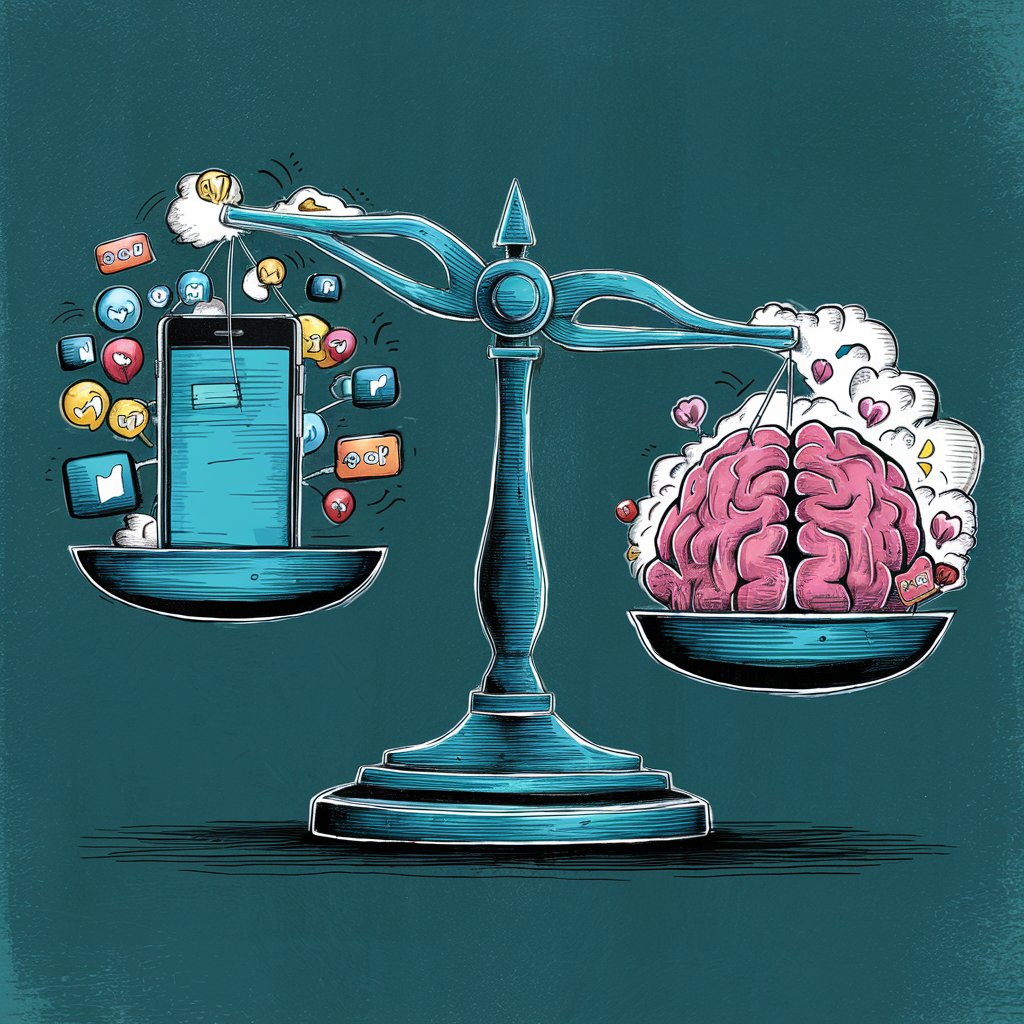Social media has become an integral part of modern life, offering unprecedented opportunities for connectivity, communication, and self-expression. However, along with its many benefits, social media also poses certain risks to mental health and well-being. In this article, we explore the complex relationship between social media use and mental health, examining both the positive and negative effects it can have on individuals’ psychological well-being.
Positive Effects of Social Media
Social Support and Connection: Social media platforms provide a virtual space for individuals to connect with friends, family, and communities, fostering a sense of belonging and social support. For many people, especially those who may feel isolated or marginalized, social media offers a valuable means of building relationships and accessing support networks.
Information and Education: Social media serves as a vast repository of information and resources on a wide range of topics, including mental health. Users can access educational content, support groups, and mental health resources, empowering them to learn more about their own mental health and seek help when needed.
Expression and Creativity: Social media platforms offer a platform for self-expression and creativity, allowing individuals to share their thoughts, ideas, and creative endeavors with a global audience. This can be particularly beneficial for individuals who may struggle to express themselves in traditional settings or who use art and creativity as a form of therapy.
Negative Effects of Social Media
Comparison and Envy: One of the most significant drawbacks of social media is the tendency for users to compare themselves unfavorably to others, leading to feelings of inadequacy, envy, and low self-esteem. Constant exposure to carefully curated images and lifestyles can create unrealistic standards of beauty and success, fueling feelings of insecurity and dissatisfaction.
Cyberbullying and Harassment: Social media platforms can also be breeding grounds for cyberbullying and harassment, with individuals facing online abuse, trolling, and negative comments from peers and strangers alike. Cyberbullying can have serious consequences for mental health, leading to anxiety, depression, and even suicidal thoughts in extreme cases.
FOMO and Anxiety: The fear of missing out (FOMO) is another common phenomenon associated with social media, as users constantly compare their own lives to the highlight reels of others. This can lead to feelings of anxiety, loneliness, and social isolation, as individuals may feel pressured to constantly stay connected and participate in online activities to avoid feeling left out.
Strategies for Healthy Social Media Use
Set Boundaries: Establish clear boundaries around your social media use, including designated times for checking notifications and limits on screen time. Avoid using social media as a means of procrastination or escapism, and prioritize real-life interactions and activities.
Curate Your Feed: Take control of your social media experience by curating your feed to include content that uplifts and inspires you. Unfollow accounts that trigger negative emotions or feelings of inadequacy, and seek out communities and influencers who promote positivity and authenticity.
Practice Mindfulness: Approach social media use mindfully, being aware of how it affects your mood, energy levels, and overall well-being. Take regular breaks from social media to recharge and reconnect with yourself and the world around you.
Seek Support When Needed: If you find that social media is negatively impacting your mental health, don’t hesitate to seek support from friends, family, or mental health professionals. Remember that it’s okay to take a step back from social media if it becomes overwhelming or detrimental to your well-being.
Social media can have both positive and negative effects on mental health, depending on how it is used and the individual’s unique circumstances. While social media offers opportunities for connection, expression, and information-sharing, it also poses risks such as comparison, cyberbullying, and FOMO. By adopting healthy social media habits, setting boundaries, and seeking support when needed, individuals can navigate the digital landscape more mindfully and protect their mental health in the process.

















